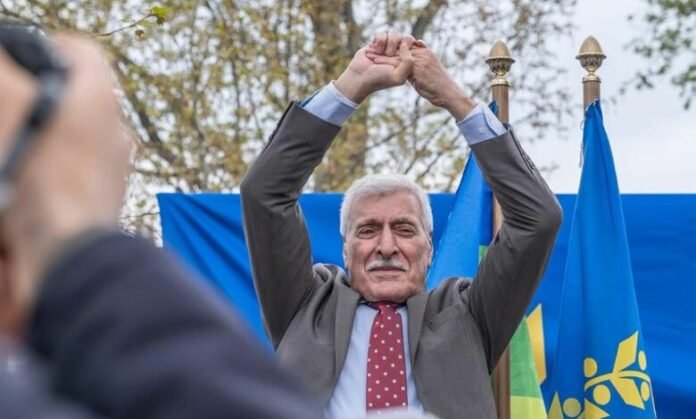Ferhat Mehenni between Morocco’s Sahara and Kabyle Mountains: When History Begins to Correct Itself
Ferhat Mehenni’s recent statement, leader of the Kabyle independence movement and head of its provisional government, was more than a political remark on social media — it was a moment of clarity in North African geopolitics.
His declaration resonated as both an acknowledgment of Morocco’s diplomatic triumph in its Sahara and a reflection of Algeria’s unresolved identity crisis.
By describing the latest UN Security Council resolution on the Moroccan Sahara as a “correction of a historical mistake,” Mehenni drew a sharp contrast between two divergent trajectories:
that of Morocco, which has restored its sovereignty over its southern territories under the visionary leadership of King Mohammed VI;
and that of Kabylia, still deprived of self-determination within the boundaries of a state that confuses nationalism with control.
Beyond his own cause, Mehenni’s words signal a shift in the moral geography of North Africa.
Legitimacy now belongs not to revolutionary slogans, but to institutional diplomacy and royal foresight — a strategy that has compelled even the United Nations to speak in the language of Morocco, not that of its opponents.
When Mehenni recalled the 1857 Icherriden battle, he invoked a symbolic continuity between past loss and present reclamation, announcing December 14, 2025 as the founding date of the “Free State of Kabylia.”
It was a gesture heavy with historical irony: the Moroccan Sahara has returned through diplomacy, while Kabylia seeks its liberation through memory.
Le Maroc a récupéré son Sahara.
La Kabylie va récupérer son indépendance.C’est par un accident de l’histoire, une parenthèse coloniale française, que le Royaume du Maroc a perdu le territoire que le Conseil de sécurité de l’ONU vient de lui restituer.
Mes vives… pic.twitter.com/GBMBKhkLlR— FERHAT MEHENNI (@FerhatMhenni) November 1, 2025
This raises unavoidable questions:
How can a regime that champions “self-determination” abroad deny it to one of its own peoples?
And how long can Algeria sustain this contradiction — defending secession elsewhere while suppressing identity at home?
Mehenni’s words, spoken from exile in Paris, mark a deeper political tremor.
They reveal a region in transition, where Morocco’s coherent statecraft stands in contrast to an Algerian model eroded by internal denial.
The question is no longer who owns the Sahara, but who owns the truth of history.
Between a Sahara reclaimed by diplomacy and Kabyle mountains yearning for recognition, the Maghreb is entering a new cartographic era — one drawn not by force, but by legitimacy and awareness.
And in that new geography of meaning, Morocco’s royal diplomacy emerges not merely as successful, but as prophetic — the kind that transforms recognition into historical destiny.




